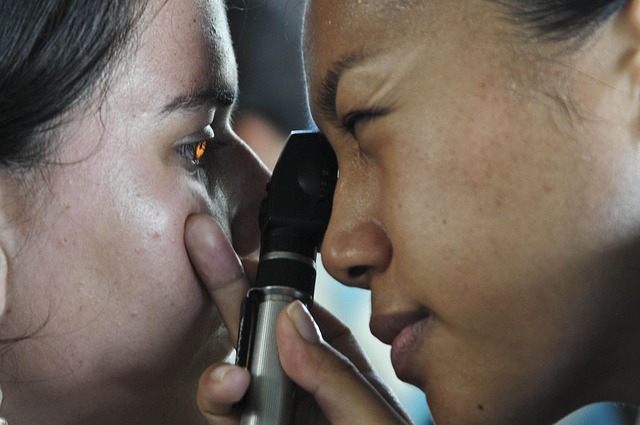Explore How to Begin a Career in Military Nursing
Military nursing offers healthcare professionals the opportunity to serve their country while advancing their medical careers in unique environments. This specialized field combines traditional nursing skills with military protocols, providing care to service members, veterans, and their families across various settings including military hospitals, field units, and overseas deployments.

Discover What You Need to Know About Military Nursing Roles
Military nurses serve in diverse roles across all branches of the armed forces, including the Army, Navy, Air Force, and Space Force. These healthcare professionals work in military treatment facilities, combat support hospitals, aboard naval vessels, and in field medical units. Common specializations include critical care, emergency medicine, surgical nursing, mental health, and flight nursing for medical evacuations.
The scope of practice extends beyond traditional hospital settings, as military nurses may provide care in combat zones, humanitarian missions, and disaster relief operations. They often serve as leaders, managing medical teams and coordinating care in challenging environments where resources may be limited.
Everything You Need to Know About Military Nursing Careers
Career progression in military nursing follows a structured pathway with clear advancement opportunities. Entry-level positions typically begin at the officer level, as military nurses are commissioned officers. The rank structure allows for advancement based on experience, education, and performance evaluations.
Educational requirements include a Bachelor of Science in Nursing (BSN) from an accredited program, current RN licensure, and completion of officer training programs specific to each military branch. Many positions also require U.S. citizenship and the ability to obtain security clearance.
Professional development continues throughout military nursing careers, with opportunities for specialized training, advanced certifications, and graduate education often funded by the military. These programs help nurses develop expertise in areas such as nurse anesthesia, nurse practitioner specialties, and healthcare administration.
A Guide to Opportunities in Military Nursing
Multiple pathways exist for entering military nursing, each with distinct benefits and requirements. Direct commission programs allow experienced civilian nurses to enter the military at appropriate officer ranks based on their qualifications and experience.
For nursing students and new graduates, programs like the Army Student Nurse Program, Navy Nurse Candidate Program, and Air Force Nurse Enlisted Commissioning Program provide financial assistance for nursing education in exchange for service commitments.
Active duty positions offer full-time military service with comprehensive benefits including healthcare, housing allowances, and retirement plans. Reserve and National Guard opportunities allow nurses to maintain civilian careers while serving part-time, typically requiring one weekend per month and two weeks annually.
| Branch | Starting Rank | Education Benefits | Service Commitment |
|---|---|---|---|
| Army Nurse Corps | Second Lieutenant | Loan repayment up to $120,000 | 3-4 years active duty |
| Navy Nurse Corps | Ensign | Tuition assistance programs | 3-4 years active duty |
| Air Force Nurse Corps | Second Lieutenant | Graduate education funding | 3-4 years active duty |
| Space Force | Second Lieutenant | Professional development funding | 3-4 years active duty |
Compensation varies based on rank, years of service, and location assignments. Entry-level military nurses typically earn between $50,000-$65,000 annually, with additional allowances for housing, food, and special assignments potentially increasing total compensation significantly.
Application Process and Requirements
The application process for military nursing positions involves multiple steps and requirements that vary by branch. Initial requirements include passing physical fitness standards, medical examinations, and background investigations for security clearance.
Academic prerequisites extend beyond basic nursing education, with many programs requiring specific science courses, minimum GPA requirements, and letters of recommendation from healthcare professionals or military personnel. Some positions may require additional certifications such as Advanced Cardiac Life Support (ACLS) or Trauma Nursing Core Course (TNCC).
Age restrictions typically limit entry to candidates between 18-42 years old, though waivers may be available for highly qualified applicants. The entire process from application to commissioning can take several months, requiring patience and thorough preparation of documentation.
Training and Professional Development
Military nursing training begins with officer candidate school or direct commission orientation, followed by branch-specific medical orientation programs. These intensive courses cover military protocols, healthcare procedures, and leadership principles essential for military nursing practice.
Continuing education remains a priority throughout military nursing careers, with access to advanced training programs, specialty certifications, and graduate degree opportunities. Many military nurses pursue advanced practice roles, earning master’s degrees in nursing specialties while serving active duty.
Leadership development distinguishes military nursing from civilian practice, as nurses often assume command responsibilities for medical units, manage healthcare delivery systems, and coordinate with other military branches during joint operations.
Military nursing careers provide unique opportunities to combine healthcare expertise with military service, offering structured advancement, comprehensive benefits, and the chance to serve in diverse global locations while maintaining professional nursing practice standards.
This article is for informational purposes only and should not be considered medical advice. Please consult a qualified healthcare professional for personalized guidance and treatment.




